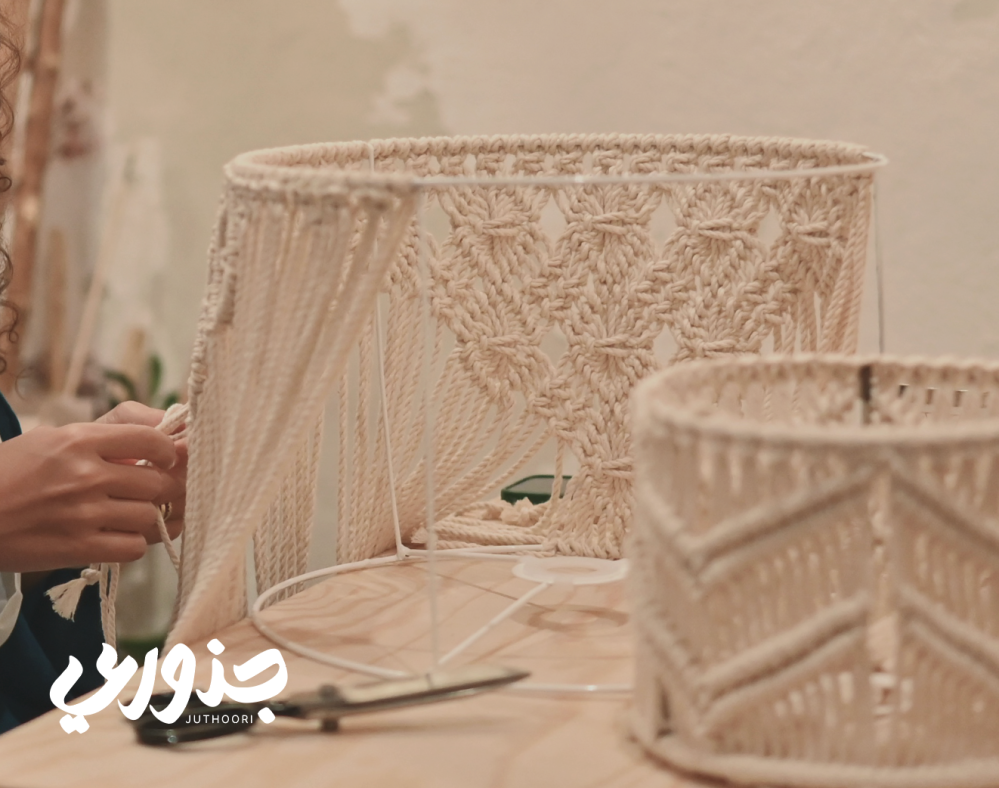Macramé Craft (Handmade Macramé)
- Definition and Origin:
- Name: Macramé (or Makrameh).
- Origin: Said to be of Persian origin, used in fishing nets and sailors’ tools, while others trace its beginnings to the Arabs who used it to decorate weapons and clothing.
- Later, it developed into the world of design, décor, and fashion.
- Method of Work:
- The craft relies on two main knots:
- Square knot.
- Vertical knot.
- From just these two knots, many designs can be created.
- No needles or knitting tools are needed; it depends mainly on:
- Hands.
- Patience.
- Cotton threads.
- Tools and Materials:
- Threads: Preferably natural cotton, though blends such as cotton with polyester are also used.
- Supporting tools:
- Wooden rod for hanging.
- Scissors.
- Measuring tape.
- Rings (for keychains, for example).
- Time Required for Products:
- Quickest product: Can be finished in 10 minutes (e.g., keychains).
- Longest product: A 3-meter-wide wall hanging that took two months to complete.
- Craft Evolution:
- Shifted from a functional craft to a form of art and décor.
- It has become associated with the bohemian style.
- Influenced by international cultures and styles such as those from Europe and England, but the Jidori team strives to preserve local identity in their designs.
- Current Challenges:
- Macramé cannot be machine-made—it relies entirely on handwork.
- Requires continuous training and creative human skills.
- Any mistake in knots may require undoing several steps.
- The market does not always recognize the value of the time and effort invested.
- Vision for the Future:
- Blending modernity with tradition to sustain the craft.
- Integrating macramé into contemporary designs, similar to what happened with Sadu.
- Making the craft sustainable and widespread across generations by expanding its uses (décor, fashion, accessories, etc.).
- Training is crucial, as it allows artisans to find their own style.
- Message:
- Every piece is crafted with love, a story, and passion.
- Quality and mastery are the foundation of the craft’s continuity.
- Their motto: “Do things with love, sincerity, and consistency.”

